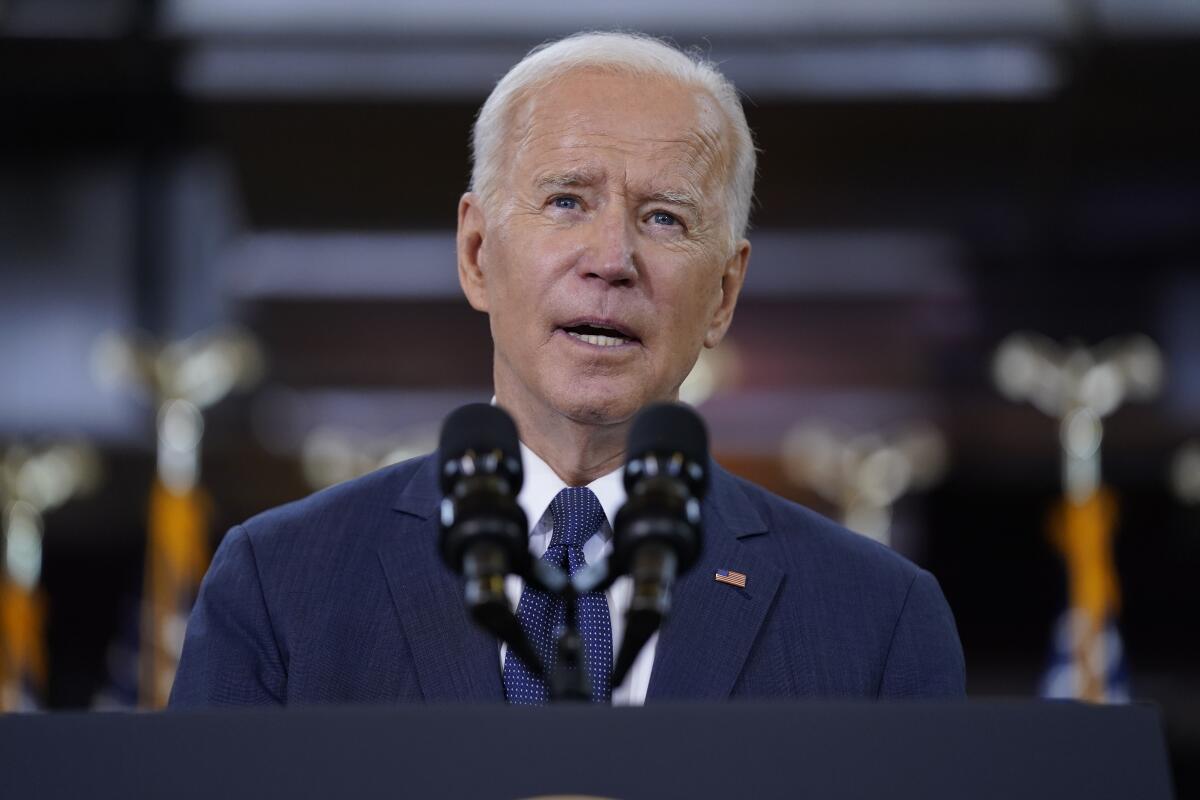Editorial: Curing the violence pandemic

When President Biden announced his executive action Thursday to deal with the nation’s surging violence, most attention understandably went to his plans to stop the proliferation of so-called ghost guns — firearms that can be hastily assembled from untraceable kits.
But let’s not overlook the importance of the community violence prevention and intervention aid that Biden is offering concurrently with his gun control plans. They represent welcome and desperately needed federal support for local programs that treat violence much as we treat infectious disease — as public health problems that can be diagnosed and treated before they become epidemics, or even inoculated against altogether. With some effort and creativity, cities and counties can use the opportunity presented by Biden’s program to turn the tide of not just violence but its underlying causes to boot, such as poverty and inequity.
Los Angeles at first adopted the public health approach to violence in dribs and drabs, generally choosing instead to respond to violent crime with harder-hitting policing and mass incarceration. That was a policy decision made here and in jurisdictions around the country in the 1980s in response to the profusion of crack cocaine. It ravaged communities of color. We suffer today from the policy failures of the 1980s and 1990s. Biden’s program represents a sort of do-over, already in progress at the local level.
L.A.’s violence prevention strategy has so far focused mostly on gang crime, and it floundered for a decade as a succession of programs — Hope in Youth, L.A. Bridges — failed to demonstrate or document any positive impact on violence. The situation improved in 2009 with the creation of GRYD, the Mayor’s Office of Gang Reduction and Youth Development, which combines long-standing summer and after-school activities (to counter the influence of youth gangs) with peer peacemakers who keep their finger on the pulse of communities and intervene to prevent outbreaks of retaliatory gang killings.
But much of the deadly violence that began last year and is continuing unabated is not gang-related, and addressing it goes beyond the scope of GRYD’s reach.
Los Angeles County, meanwhile, in 2019 established an Office of Violence Prevention within the Public Health Department, incorporating mental health, youth justice and poverty programs. The county’s ambition is commendable, but implementation lags.
Biden included $5 billion for violence prevention in his infrastructure proposal, but it’s in Congress’ hands and is hardly assured of passage. Still, the executive actions he announced Thursday make already available funding more accessible and flexible, and would support the public health approach to violence that L.A. and the nation desperately need.
More to Read
A cure for the common opinion
Get thought-provoking perspectives with our weekly newsletter.
You may occasionally receive promotional content from the Los Angeles Times.










